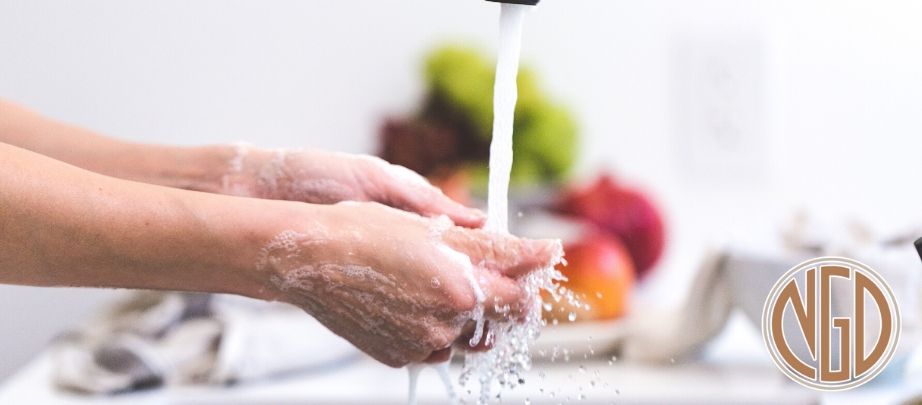Find the information you need! Check out our Frequently Asked Questions.
Can’t find your answer here? Feel free to call our office. Our staff will be happy to help.

What is orthodontics?
Orthodontics (also referred to as dentofacial orthopedics) is a specialized branch of dentistry that focuses on the diagnosis, prevention, and treatment of malocclusions.
Who is an orthodontist?
Orthodontists are dentists who graduate dental school and then attend a full-time, university-based, and accredited orthodontic residency program. Orthodontic residency can last two or three years past dental school. During this time, orthodontists receive specialized training in tooth movement and facial development. Orthodontists learn how to straighten teeth, correct misaligned jaws, and improve the function of the bite.
What’s the best age to visit the orthodontist?
If you want to improve the look and feel of your smile, then any age can be a great age to see an orthodontist. The American Association of Orthodontists recommends that children first visit an orthodontist around the age of seven. Orthodontic treatment, however, is not exclusive to children and teens. Today, nearly one in five orthodontic patients is over the age of twenty-one. Whether you’re considering treatment for yourself or your child, any time is a good time to visit the orthodontist.
How can I take care of my teeth if I’m wearing braces or a retainer?
- ALWAYS remember to brush your teeth after every meal and floss at least once a day.
- Make sure to use toothpaste that contains fluoride, and ask your orthodontist or family dentist if you need a fluoride rinse. This will help prevent cavities!
- If you take out your retainer or aligner to eat, make sure you brush your teeth and floss before putting it back in your mouth. Remember to keep it safe in its container so that it does not get lost or broken.
- Keep your retainer clean, too, by brushing it gently with a toothbrush and toothpaste. You may also soak it in denture cleaner as instructed by your orthodontist. Do not put your retainer in boiling water or the dishwasher.
- During your treatment, try to avoid foods with a lot of sugar (sugar increases the number of bacteria that grows in your mouth, causing more plaque and possibly cavities).
- Avoid sticky and chewy foods (caramel, chewing gum, gummy bears), hard foods (hard candy, nuts, ice cubes), or any foods that could get stuck in your braces (corn on the cob, soft bagels, ribs, taffy, etc.).
- Be sure to schedule your routine checkups with your family dentist. It is recommended that you continue to visit the dentist every six months.
What are braces?
Braces are used by your orthodontist to help you improve the look and feel of your smile. There are several different types of braces to choose from, including:
- Clear or Ceramic braces
- “Invisible braces” such as Invisalign® and Invisalign Teen™ clear aligners
- Self-ligating braces
- Traditional metal braces
If I get braces, how long do I have to wear them?
The amount of time spent in braces will vary depending on the individual patient because every smile responds differently to treatment. Treatment times can take anywhere between six and thirty months, but most standard treatments take about twenty-two months.
Do braces hurt?
You may experience some discomfort during your treatment. This is especially true in the first days after your braces are placed. As your mouth adjusts to having the braces in place, you will barely even notice them.
Do I need to brush my teeth more often if I have braces?
You should brush your teeth at least three times a day to keep your teeth, gums, and mouth healthy and clean. Brushing regularly will help remove any food that may be caught between the braces. You should also floss daily to get in between your braces where your brush isn’t able to reach. Your orthodontist can show you how to properly brush and floss once your braces are placed.
If I have braces, do I still need dental checkups every six months?
Yes! It’s even more important that patients receiving orthodontic treatment visit their dentist regularly. Your braces create a lot of nooks and crannies where food can get caught and your toothbrush may be able to reach. This causes bacteria to build-up that can lead to cavities, gingivitis, and gum disease. Your dentist will work closely with your orthodontist to make sure that your teeth stay clean and healthy while wearing braces.
Will my braces interfere with my school activities like sports, playing an instrument, or singing?
Wearing braces should not stop you from participating in your favorite activities. It may, however, require a bit of adjustment. If you play a contact sport or a sport where a blow to the mouth could occur, you should wear a mouthguard to protect your braces and teeth.
How do I schedule my next appointment?
Simply call our practice! Our front desk staff will be happy to help schedule your next appointment at your convenience. If you are a new patient or have been referred to our practice, please let us know and we will provide you with all of the information you need.






